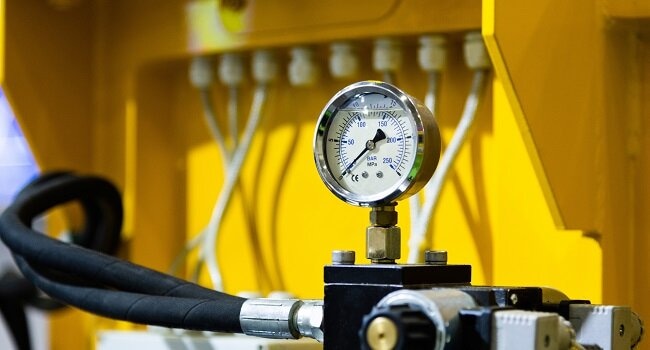Integrating Precision Fluid Control In Modern Building Design
Modern building design increasingly integrates advanced technologies to enhance sustainability, energy efficiency, and occupant comfort. Among these technologies, precision fluid control systems stand out for their ability to optimize a building’s performance by accurately regulating fluids like water, air, and gases. This article aims to present a cohesive understanding of how these systems are essential […] The post Integrating Precision Fluid Control In Modern Building Design appeared first on World Construction Today.

Modern building design increasingly integrates advanced technologies to enhance sustainability, energy efficiency, and occupant comfort. Among these technologies, precision fluid control systems stand out for their ability to optimize a building’s performance by accurately regulating fluids like water, air, and gases.
This article aims to present a cohesive understanding of how these systems are essential in modern architecture, discussing their importance, applications, and benefits and addressing the challenges involved.
The Importance And Applications Of Precision Fluid Control
Precision fluid control is critical in managing fluid distribution, maintenance, and utilization within a building’s infrastructure, including heating, ventilation, and air conditioning (HVAC) systems, plumbing, and fire suppression. This precise regulation leads to the following:
- Improved Energy Efficiency: These systems enhance energy efficiency by optimizing the operation of HVAC systems, ensuring they function only when necessary and at optimal levels. This translates to lower energy consumption and utility costs.
- Enhanced Sustainability: By controlling water flow and pressure efficiently, precision fluid control aids in water conservation and reduces energy use, contributing to the overall sustainability of the building.
- Occupant Comfort: The consistent and comfortable indoor conditions provided by these systems improve the well-being of occupants.
Notably, these systems find diverse applications across various building operations:
- HVAC Systems: They regulate air and water flow, utilizing variable speed pumps, dampers, and control valves.
- Plumbing Systems: Efficient water distribution and pressure regulation minimize water usage and prevent leaks.
- Fire Suppression Systems: For fire safety, these systems precisely control water delivery during emergencies. This ensures adequate fire suppression while avoiding water wastage, which is crucial for both safety and sustainability.
- Industrial Processes And Water Treatment: They’re essential in managing the flow of fluids in industrial settings and maintaining water quality in treatment systems.
Precision control in these areas, particularly through advanced valves, is key to these systems’ efficient and effective operation.
Benefits Of Integrating Precision Fluid Control
Integrating precision fluid control systems into modern building design offers a wide range of benefits that impact both building owners and occupants:
- Cost Savings: Building owners can significantly reduce operational costs by optimizing the use of fluids, such as water and energy. Lower utility bills and reduced maintenance expenses translate into long-term savings.
- Environmental Impact: Precision fluid control reduces carbon footprint by minimizing water and energy waste. Sustainable building practices are good for the environment and align with regulatory requirements and industry standards.
- Reliability: These systems enhance the reliability of critical building functions, such as fire suppression and HVAC. Fail-safe features and real-time monitoring ensure systems operate efficiently and respond to emergencies effectively.
- Occupant Productivity: Maintaining consistent and comfortable indoor conditions enhances occupant satisfaction and productivity. When occupants are comfortable, they’re more likely to be content and focused, which can positively impact businesses and organizations.
- Flexibility: Precision fluid control systems are highly adaptable and can be customized to meet the specific needs of a building. Whether it’s a residential complex, commercial space, or industrial facility, these systems can be tailored to ensure optimal performance.
The various benefits of incorporating precision fluid control into building design make it a highly commendable and forward-thinking strategy in contemporary architecture and building management.
Challenges And Considerations
While precision fluid control systems offer numerous advantages, they also come with certain challenges and considerations that must be addressed during the design and implementation stages:
- Initial Investment: Integrating these systems may require a substantial upfront investment. However, it’s important to consider the long-term cost savings and benefits they provide.
- Maintenance: Regular maintenance is crucial to ensure precision fluid control systems’ continued reliability and efficiency. Building owners should establish a maintenance schedule and ensure qualified professionals perform the necessary inspections and repairs.
- Integration With Building Automation: Precision fluid control systems are typically integrated with building automation systems (BAS) to maximize their effectiveness. Coordination between different building systems is vital for seamless operation.
- System Complexity: These systems can be complex, requiring skilled professionals for installation and maintenance. Training and education for building operators are essential to ensure proper system management.
While the challenges and considerations associated with precision fluid control systems cannot be overlooked, they’re outweighed by the significant long-term advantages. Working on these challenges head-on is a wise investment in the future of sustainable and efficient building operations.
Final Thoughts
Incorporating advanced fluid control technologies is vital for elevating energy efficiency, sustainability, and occupant comfort in modern building design. This approach is gaining traction among architects, engineers, and building owners for its significant impact on enhancing building performance.

With ongoing advancements, these technologies are poised to introduce new efficiencies and innovative design possibilities. Such progress is expected to continuously reshape and elevate the landscape of sustainable architecture.
The post Integrating Precision Fluid Control In Modern Building Design appeared first on World Construction Today.

 machineryasia
machineryasia 




